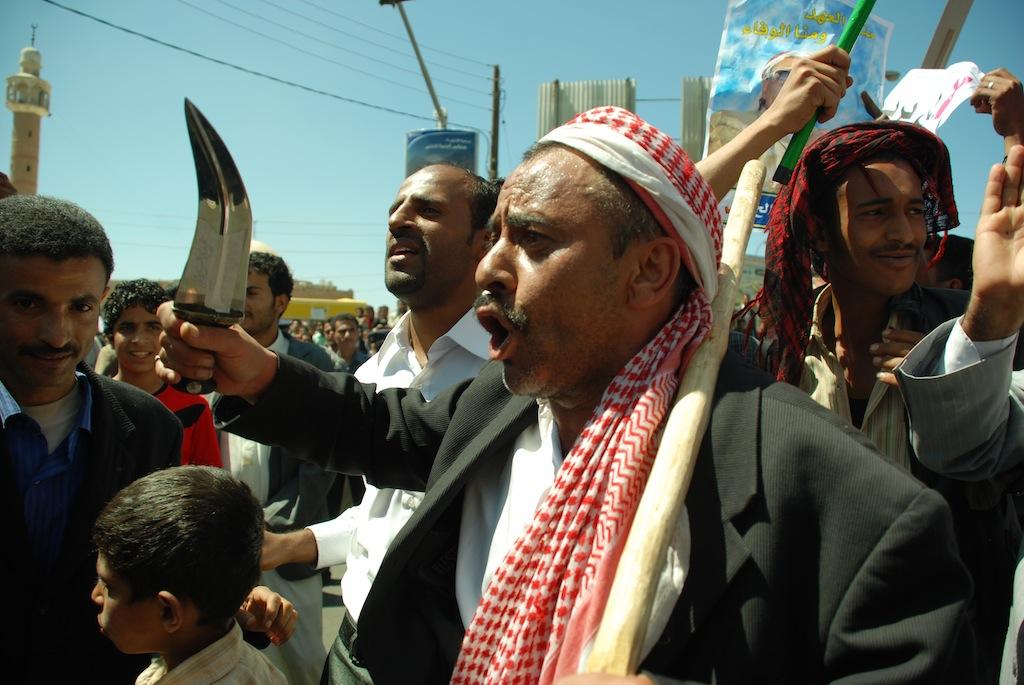In UN plan for Yemen, Yemenis are left out
A man holds up a dagger as he shouts slogans in support of Yemeni President Ali Abdullah Saleh during a protest in the capital Sanaa on Feb. 14, 2011, where thousands of students and lawyers also took to the streets to demand that Saleh step down. (Mohammad Huwais/AFP/Getty Images)
The United Nations envoy to Yemen, Jamal bin Omar, said Tuesday that Yemenis themselves must resolve the conflict that has plagued the country for more than 10 months now.
"The solution to the issue of Yemen can only be Yemeni," the envoy said.
Yet the UN resolution that is now before Yemeni President Ali Abdullah Saleh is anything but Yemeni.
The resolution, which was unanimously approved by the UN Security Council (which doesn’t include Yemen), calls on Saleh to sign a power-sharing agreement that was first drafted by the six-member Gulf Cooperation Council, a regional grouping led by Saudi Arabia.
That power-sharing agreement was drafted by regional governments and Yemen’s political opposition. Negotiations did not include the protesters who have been in the streets since January.
The White House applauded the resolution as an “unambiguous signal to President Saleh that he must respond to the aspirations of the Yemeni people by transferring power immediately.”
The resolution, however, fails in almost everyway to meet the aspirations of the Yemeni people.
It allows Saleh to remain in power for a period of time as the transfer is completed. It also allows his family members to retain top posts. Perhaps most infuriating for Yemenis is a clause that would give Saleh, in exchange for transferring power, immunity for his alleged crimes.
Protesters want Saleh held responsible for the violent crackdowns that have killed hundreds.
The deadline set by the United Nations for Saleh to sign the agreement is Nov. 21. But even if he does sign it, Yemenis are unlikely to celebrate.
“They don’t understand. We won’t accept political immunity for Saleh’s crimes against the Yemeni people. We will simply hold more marches and call for more civil disobedience,” a protester in Sanaa told GlobalPost earlier this year.
